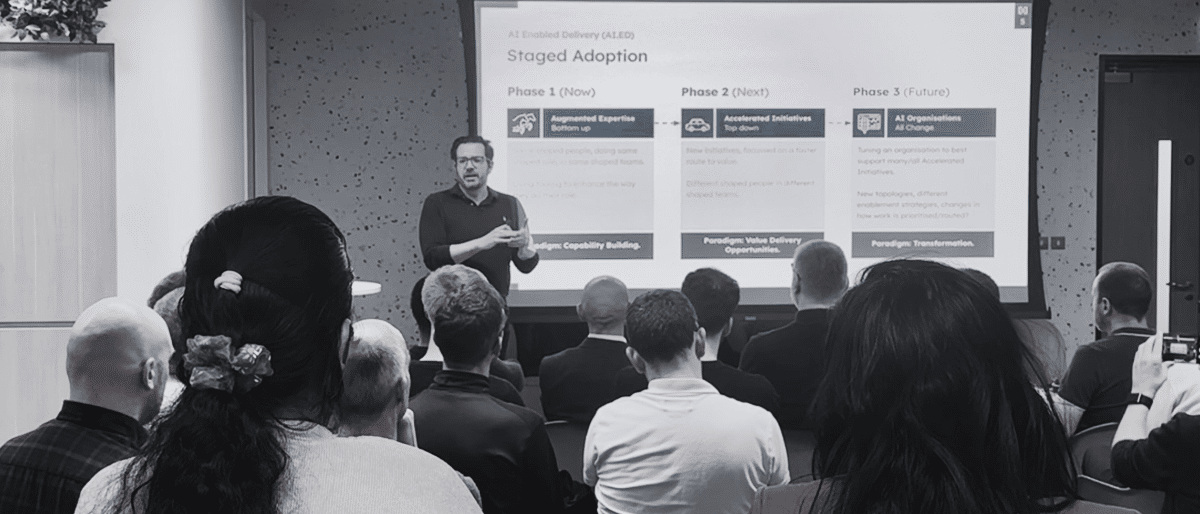Microsoft has released its 2025 Work Trend Index, offering a look at how AI is reshaping work. They are positioning the “Frontier Firm” as the model of the near future. While the report is clearly aligned to Microsoft’s tooling, with plenty of references to Copilot and their broader ecosystem, it also surfaces some useful insights for all organisations facing into the new AI era.
Frontier Firms are defined by three things:
- AI on tap: Using AI as a scalable knowledge resource (treating it like compute or storage).
- Human/agent co-sourced teams: AI agents contributing to teams, operating alongside people.
- Agent bosses: Employees aren’t just users of AI – they build, delegate to, and manage it.
Microsoft surveyed over 31,000 knowledge workers across 31 countries and identified early adopters already operating this way. Workers at Frontier Firms were 2x as likely to say their company is thriving (71% vs. 37% globally), more likely to report doing meaningful work (90% vs. 73%), and less likely to fear AI taking their job (21% vs. 38%).
Other standout stats:
- 82% of leaders expect AI agents to be integrated into their strategy in the next 12–18 months.
- 78% of leaders are actively considering hiring for AI-specific roles.
- 46% of companies say they’re already using AI to fully automate processes or workflows.
While Microsoft’s report may paint an optimistic picture, it also surfaces a pressing question: if your competitors are transforming into Frontier Firms, what does that mean for you?
What does this mean for your organisation?
When facilitating customer/industry impact sessions we often open with a provocation: If your competitors are ahead of you in AI adoption (i.e. making moves to become Frontier Firms) what risks does that create for you?
What are the implications if your rivals embed AI faster, more deeply, or more strategically? In a competitive environment where scale and speed increasingly define success, these aren’t hypothetical concerns. They’re near-term competitive risks – and the risk will be far greater the more that the delivery of your product/service depends on either
(a) software/digital product; or
(b) high-proportions of human “knowledge work”.
Companies not embracing AI will be outpaced in both of these areas by companies that do.
In our facilitation work, we help teams think through these shifts not just as technology questions, but as strategic challenges. What would it take for your organisation to respond with intent, and to overcome inertia?
Have you already seen early movement inside your business—experiments, pilots, maybe even a team or two thinking differently? What’s in the way of that becoming the norm? Skills? Strategy? Culture?
And crucially—what would help? What would it look like to address the blockers, build confidence, and deliver on AI’s promise responsibly?
What we’re doing at Equal Experts
At Equal Experts, we’re embracing Responsible AI Delivery. That means helping our clients navigate this shift, take advantage of the opportunity – without falling into the traps of hype, endless POCs, or major AI product & engineering failures (of which we expect to see lots this year…)
We avoid context-free claims and focus on using AI to deliver faster time to (sustainable) value, at lower cost.
Responsible. Reliable. Robust.




